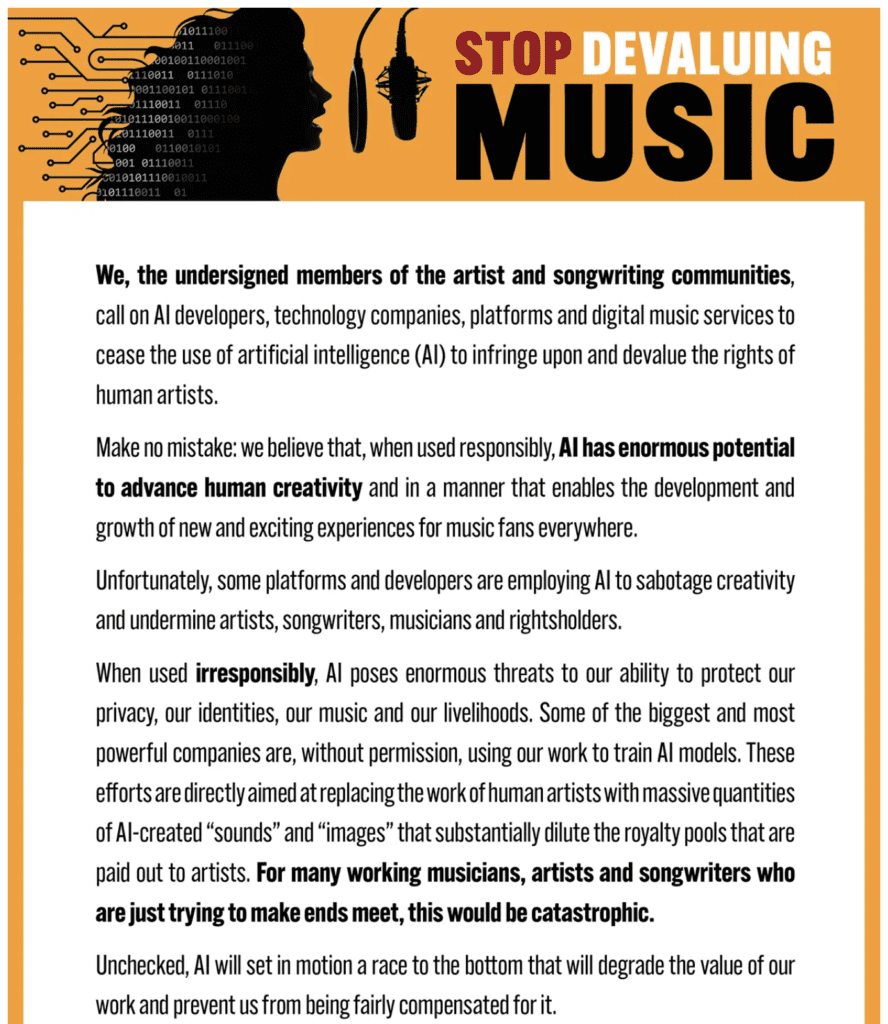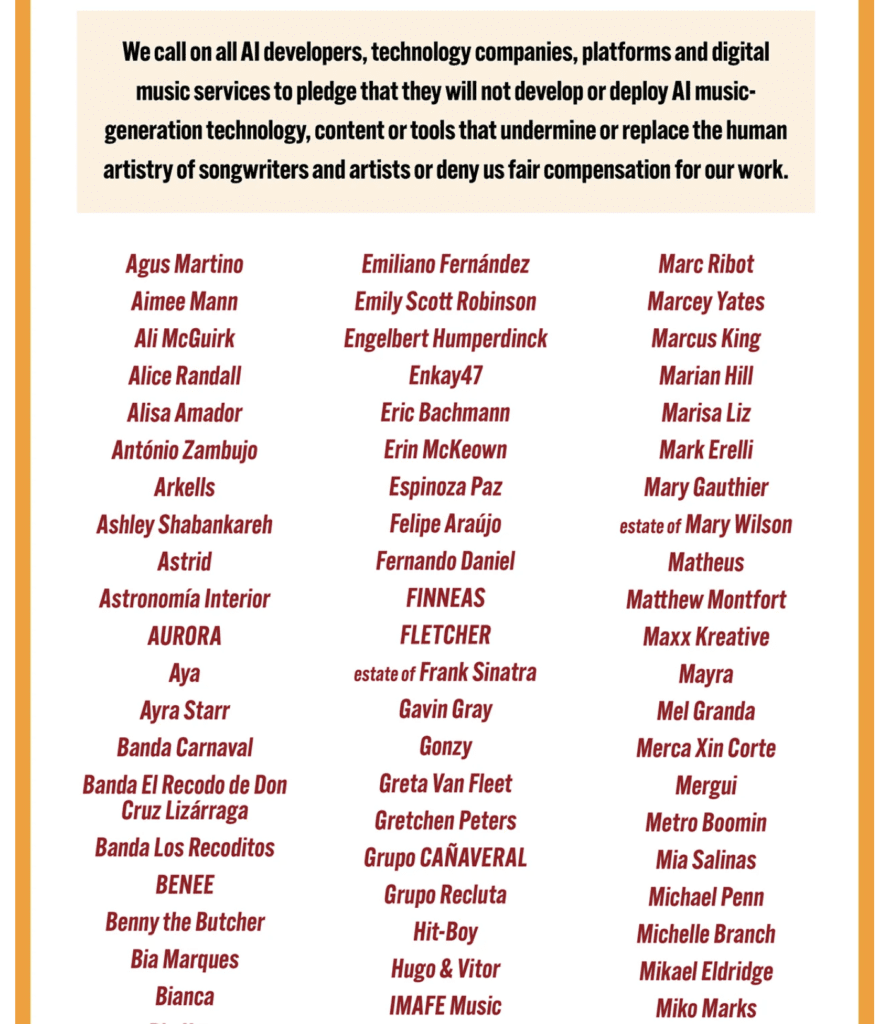Industry Giants Call for Responsible AI Use to Safeguard Creativity and Livelihoods
- Broad Coalition of Artists: Over 200 musicians, including industry heavyweights and legendary estates, have voiced their concerns through an open letter, cautioning against the unregulated use of AI in music creation and its potential to undermine human artistry.
- Ethical and Economic Implications: The letter highlights the ethical and economic dangers posed by AI music generators trained on artists’ work without consent, emphasizing the existential threat to working musicians’ livelihoods and creative expression.
- Push for Legal and Industry Standards: Amidst the growing use of AI in generating music and other creative content, artists demand stronger safeguards and ethical guidelines to ensure AI tools complement rather than replace human creativity.

In a powerful demonstration of unity and concern, over 200 musicians from diverse genres and backgrounds have come together to sign an open letter addressing the burgeoning issue of AI in music creation. Spearheaded by iconic figures such as Billie Eilish, Katy Perry, Nicki Minaj the estates of musical legends like Bob Marley and Frank Sinatra, the letter calls on tech companies and AI developers to consider the profound implications of unchecked AI music generation tools on human creativity and the music industry’s economic structure.

Artistic Integrity at Risk
The heart of the letter lies in its warning against the potential of AI to dilute the essence of human creativity. By training AI models on vast datasets comprising artists’ work—often without permission—there’s a looming fear that the unique voice and essence of human musicians could be replicated, and eventually replaced, by algorithms. This not only raises ethical concerns about copyright and consent but also puts at risk the very livelihood of countless artists who rely on their unique creative outputs to sustain their careers.

Economic Undercurrents
The economic ramifications of AI in music stretch beyond individual artists, threatening the broader ecosystem that supports a myriad of roles, from songwriters to session musicians. The letter underscores the precarious position of artists in an already challenging digital landscape, where streaming royalties offer meager compensation. The introduction of AI as a potential substitute for human-created content adds another layer of uncertainty to an industry already grappling with digital disruptions.
Legal Ambiguities and Industry Response
As the letter points out, the rapid advancement of AI in creative domains has outpaced the legal frameworks designed to protect intellectual property and artists’ rights. This legal grey area leaves artists vulnerable to exploitation, with little recourse against tech giants that wield these AI tools. The collective outcry from musicians underscores the urgent need for industry standards and legal protections that not only recognize the value of human creativity but also ensure AI serves as a tool for enhancement rather than replacement.
Broader Creative Community Concerns
The musicians’ letter echoes sentiments previously expressed by authors and visual artists, signaling a growing apprehension within the creative community about AI’s role in art. As AI continues to evolve, the call for ethical guidelines and responsible development becomes increasingly pressing, urging tech companies to engage in a dialogue with creators to find a balanced path forward.
The open letter from over 200 musicians is a clarion call for a thoughtful examination of AI’s impact on creativity and livelihoods in the music industry. It advocates for a future where AI and human creativity coexist, complementing rather than competing with each other, to enrich the artistic landscape while safeguarding the rights and economic well-being of artists worldwide.
